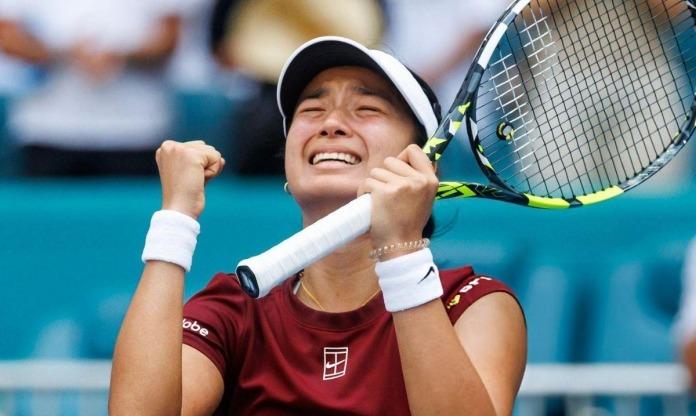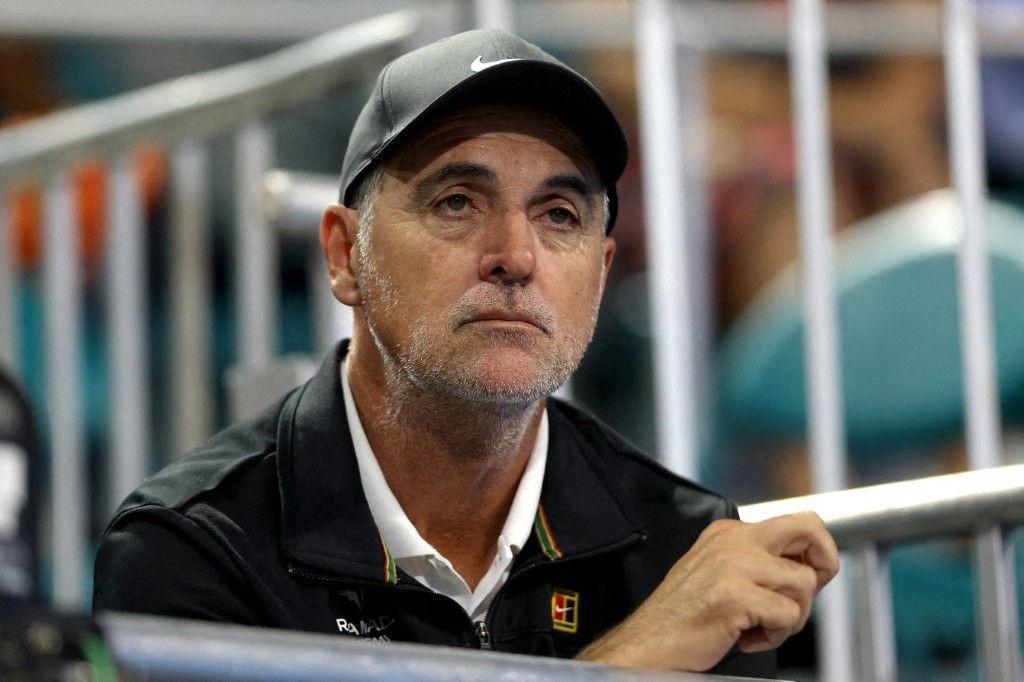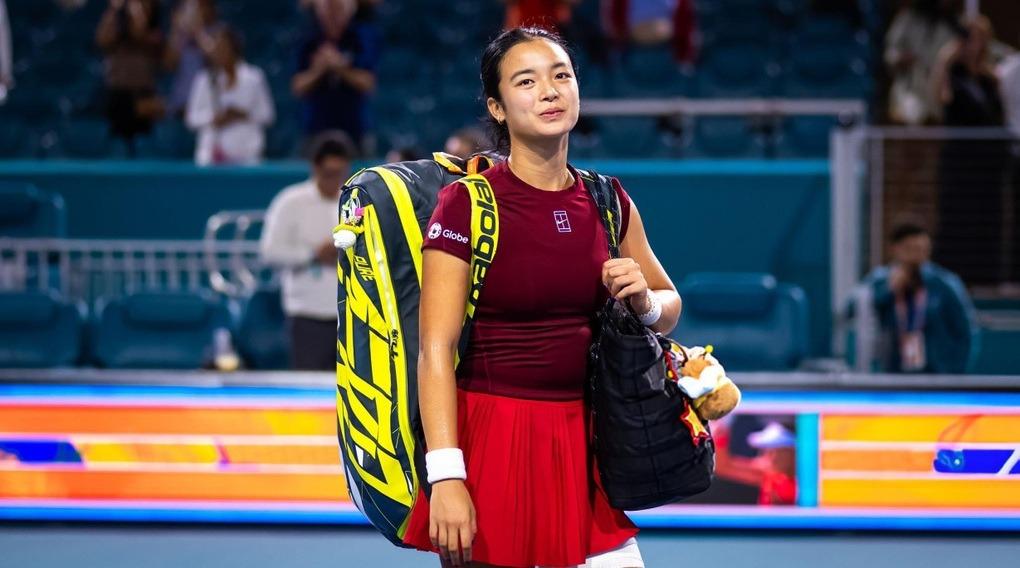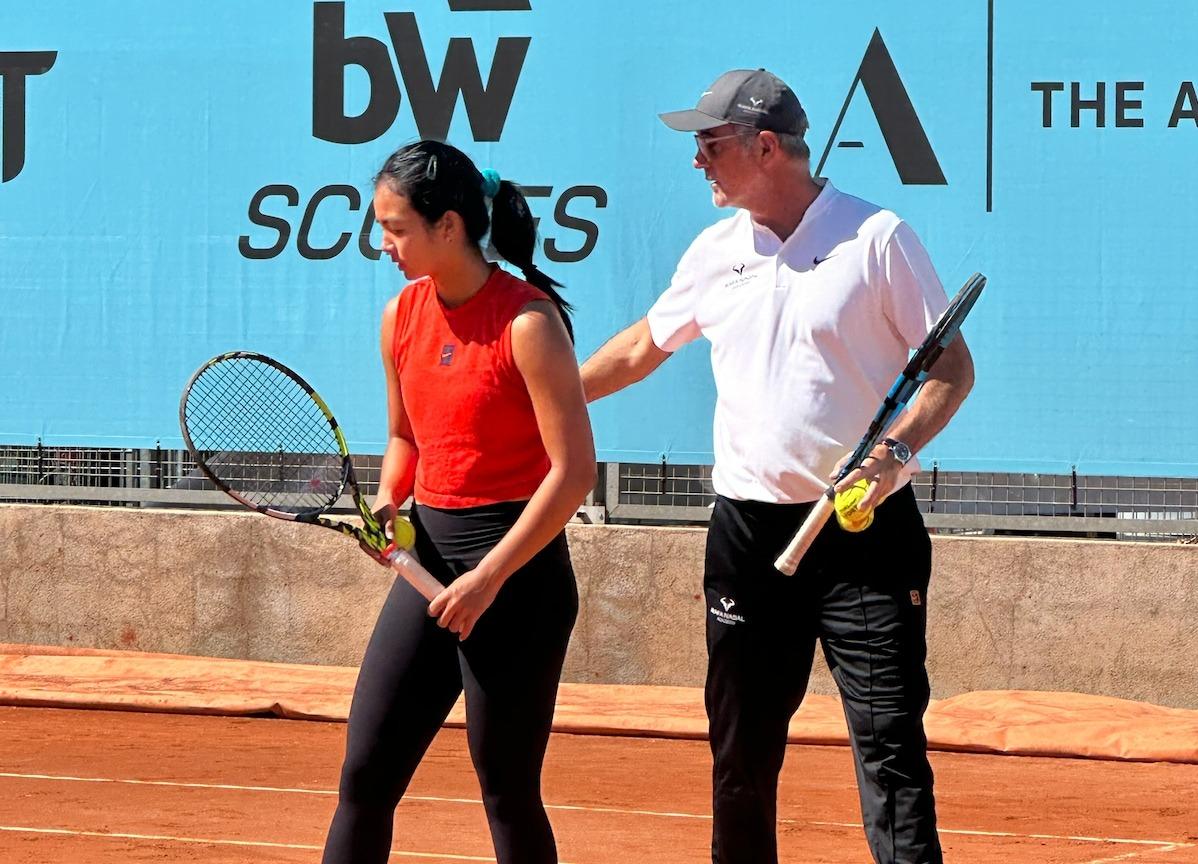Tennis fans were left stunned this week as Alexandra Eala, the young Filipino tennis star, faced a wave of harsh criticism and online abuse following her early exit from the first round of the French Open. But now, her coach has broken his silence – and his powerful eight-word response is resonat ing across the tennis world.
“We can’t take it anymore,” he declared in a post-match interview. “This has gone far beyond fair critique.”
Eala, only 19 years old, entered Roland-Garros with high hopes, but was quickly eliminated in the opening round by a higher-seeded opponent. While early exits are not uncommon in Grand Slams – especially for younger players still finding their footing on the pro tour – the backlash she received online was anything but ordinary. What began as disappointment quickly spiralled into a torrent of negativity on social media, with critics targeting not only Eala’s performance, but her character, training decisions, and even her background. The vitriol became so intense that her team decided enough was enough.
What began as disappointment quickly spiralled into a torrent of negativity on social media, with critics targeting not only Eala’s performance, but her character, training decisions, and even her background. The vitriol became so intense that her team decided enough was enough.
Speaking to the press, Eala’s long-time coach defended his protégé fiercely:
“She’s 19. She’s learning. She’s growing,” he said. “This constant hate – it’s not just noise anymore. It’s harmful.”
The coach’s eight-word clapback – “If you’ve never tried, don’t insult others” – has since gone viral, with fans and athletes alike praising his composure and message.
In the hours following the interview, fellow tennis players, including WTA veterans and coaches, rallied around Eala online. Australian tennis icon Samantha Stosur tweeted, “We’ve all had first-round exits. Give the kid a break. She’s got talent – and time.”
Others noted that the transition from juniors to the pro circuit is one of the toughest journeys in sport. Eala, a former junior Grand Slam champion, is still adapting to the rigours of the top-level game – and doing so under intense spotlight.
Despite the disappointing result at Roland-Garros, Eala remains optimistic. Her team confirmed she will be taking a short break before regrouping for the grass-court season, with her eyes set on Wimbledon qualifiers next.
“We’re not going to let hate define her journey,” her coach added. “Every great player has faced setbacks. This is part of the process.”
In an era where athletes are more accessible – and more scrutinised – than ever, the case of Alexandra Eala reminds us of the fine line between opinion and abuse. And thanks to her coach’s heartfelt stand, it’s a conversation that now refuses to be ignored.





